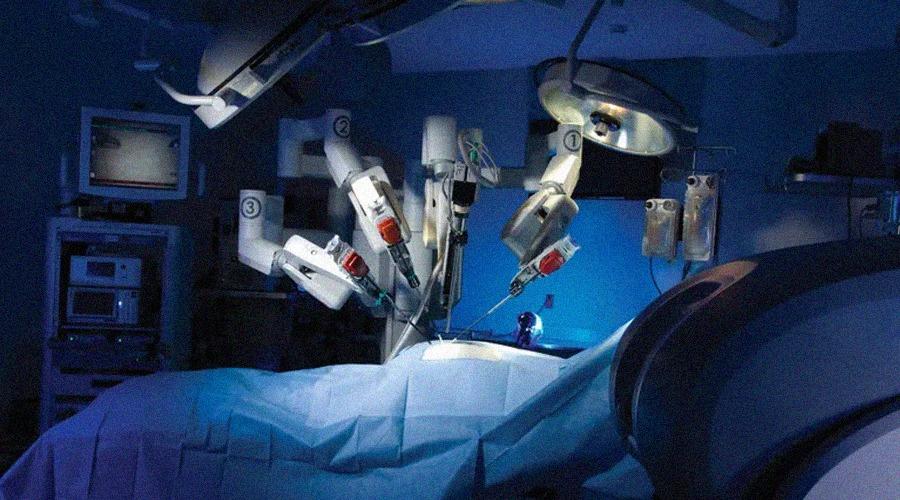The implementation of AI technology in Punjab hospitals is set to usher in a new era of advanced disease diagnosis and treatment. With the support of the Punjab Information Technology Board (PITB), state-of-the-art AI software will be integrated into hospitals, promising rapid and accurate diagnoses through AI algorithms.
The primary objective of this groundbreaking initiative is to revolutionize healthcare in Punjab by leveraging AI technology to enhance the efficiency of medical professionals and improve patient outcomes. The pilot project will be launched at Jinnah Hospital and the Punjab Kidney and Liver Institute (PKLI), two renowned healthcare facilities in the province. Once the pilot project proves successful, the second phase will involve migrating other hospitals already operating on the PITB computerized system to the AI-based platform.
By harnessing modern software and AI algorithms, healthcare providers will gain access to a vast array of treatment methods that can potentially save lives. The integration of artificial intelligence will also facilitate the development of accurate medication plans, ensuring that patients receive the most suitable and personalized treatments for their conditions. The Punjab Health Minister emphasized the significance of this transformative initiative, stating, “Our aim is to harness the power of artificial intelligence to improve healthcare delivery and save more lives. With AI-driven diagnosis, we can identify diseases swiftly and provide timely interventions, leading to better health outcomes for our patients.”

Dr. Javed Akram, a renowned medical expert and advocate for AI integration in healthcare, highlighted the potential of this technology. According to Dr. Akram, “Artificial intelligence has the potential to revolutionize medicine. In addition to diagnosing diseases, it can assist in predicting and preventing illnesses, empowering healthcare providers with valuable insights and enabling proactive care.” The integration of AI in healthcare is poised to transform the medical landscape in Punjab, bringing about enhanced precision, efficiency, and improved patient care.
One of the primary benefits of AI in healthcare is its ability to process and analyze vast amounts of data quickly. By utilizing powerful algorithms, AI systems can sift through medical records, lab results, and other relevant information to identify patterns, predict disease progression, and provide targeted treatment recommendations. This speed and accuracy can significantly reduce the time and effort required for diagnosis, allowing healthcare professionals to make informed decisions promptly.
Moreover, AI technology can aid in the development of personalized treatment plans. Each patient is unique, and their responses to various treatments can vary. AI algorithms can analyze a patient’s medical history, genetic information, and other relevant factors to create tailored treatment plans that optimize their chances of recovery. This individualized approach can lead to better patient outcomes and improved quality of life.

Additionally, AI can play a vital role in preventive healthcare. By analyzing vast amounts of data from diverse sources, such as electronic health records, wearable devices, and public health databases, AI systems can identify patterns and risk factors associated with certain diseases. This knowledge enables healthcare providers to take proactive measures to prevent diseases or detect them at an early stage when treatment is more effective.
The introduction of AI technology in Punjab hospitals also has the potential to address the issue of the scarcity of medical specialists in remote areas. AI-powered telemedicine platforms can connect patients in underserved regions with expert doctors located elsewhere. Through video consultations and AI-assisted diagnosis, patients can receive specialized care without the need to travel long distances, thus reducing the burden on both patients and healthcare systems.
While the integration of AI in healthcare brings about numerous benefits, it is essential to address potential challenges. Privacy and data security concerns must be thoroughly addressed to ensure that patient information is protected. Furthermore, healthcare professionals need to receive adequate training to effectively utilize AI systems and interpret the results provided by these technologies.
Transforming Punjab Hospitals with Artificial Intelligence
The introduction of artificial intelligence in Punjab hospitals is a significant step toward transforming healthcare delivery. By harnessing the power of AI algorithms, healthcare professionals can benefit from rapid and accurate disease diagnoses, tailored treatment plans, and proactive healthcare interventions. This innovative approach has the potential to improve patient outcomes, enhance precision in medical care, and alleviate the burden on healthcare systems.

Read more: University of Waterloo introduces robot to aid Dementia patients
The integration of AI technology in Punjab hospitals marks a turning point in the way healthcare is delivered. It signifies a shift from traditional diagnostic methods to more sophisticated and data-driven approaches. With AI algorithms at their disposal, medical professionals can leverage the vast amount of available medical information to make informed decisions and provide personalized care to patients.
One of the key advantages of AI in disease diagnosis is its ability to analyze complex data sets rapidly. AI algorithms can process medical images, such as X-rays, CT scans, and MRIs, with remarkable accuracy. This not only speeds up the diagnostic process but also helps identify subtle patterns or abnormalities that may be challenging for human eyes to detect. As a result, diseases can be diagnosed at an earlier stage, leading to timely interventions and improved treatment outcomes.
In conclusion, the introduction of artificial intelligence in Punjab hospitals for advanced disease diagnosis and treatment holds immense potential for transforming healthcare delivery. Through the integration of AI algorithms, healthcare professionals can benefit from rapid and accurate diagnoses, personalized treatment plans, and proactive interventions. While challenges exist, proper attention to data privacy, ethical considerations, and healthcare professional training can help maximize the benefits of AI technology in improving patient outcomes and revolutionizing healthcare in Punjab.



